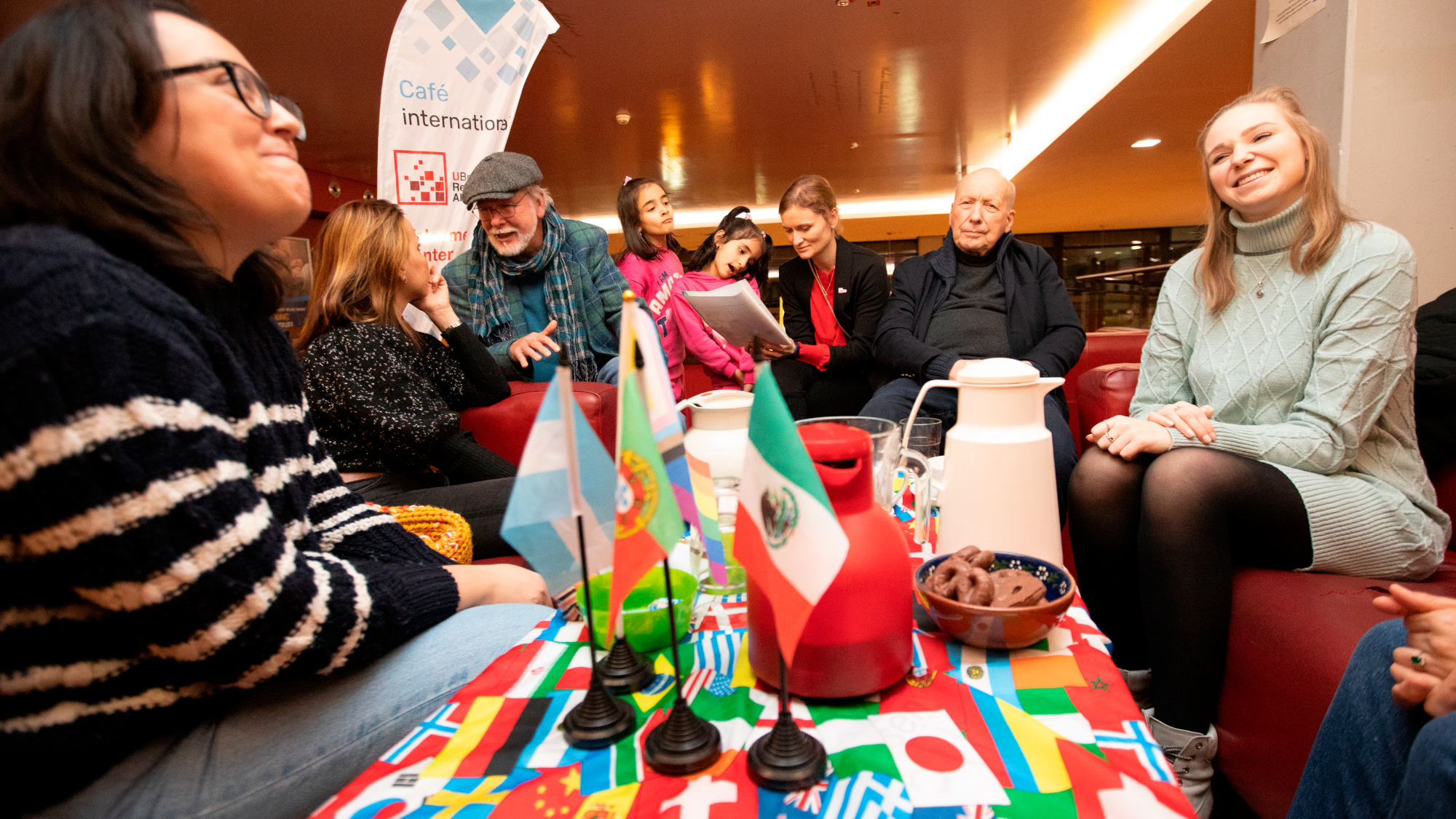
© Jens Lehmkühler
Welcome to Bremen!
The Welcome Center of the U Bremen Research Alliance supports international researchers with settling in
How do I find an apartment, a place in a daycare center, and how does health insurance work? International researchers who are new to Bremen face a number of challenges. The U Bremen Research Alliance Welcome Center helps them to settle in – in a variety of ways.
On the table is a stand with country flags; there is coffee, tea, and cookies. Around a dozen people are sitting on red sofas in the cafeteria in GW2 building on campus. They are engaged in lively conversation. The Café International regulars meet every Wednesday at the initiative of the Welcome Center, which Huma Yari says is “like a family” to her, and which Andrew Torget simply considers to be an “incredibly helpful institution” that should also exist back home at the University of North Texas.
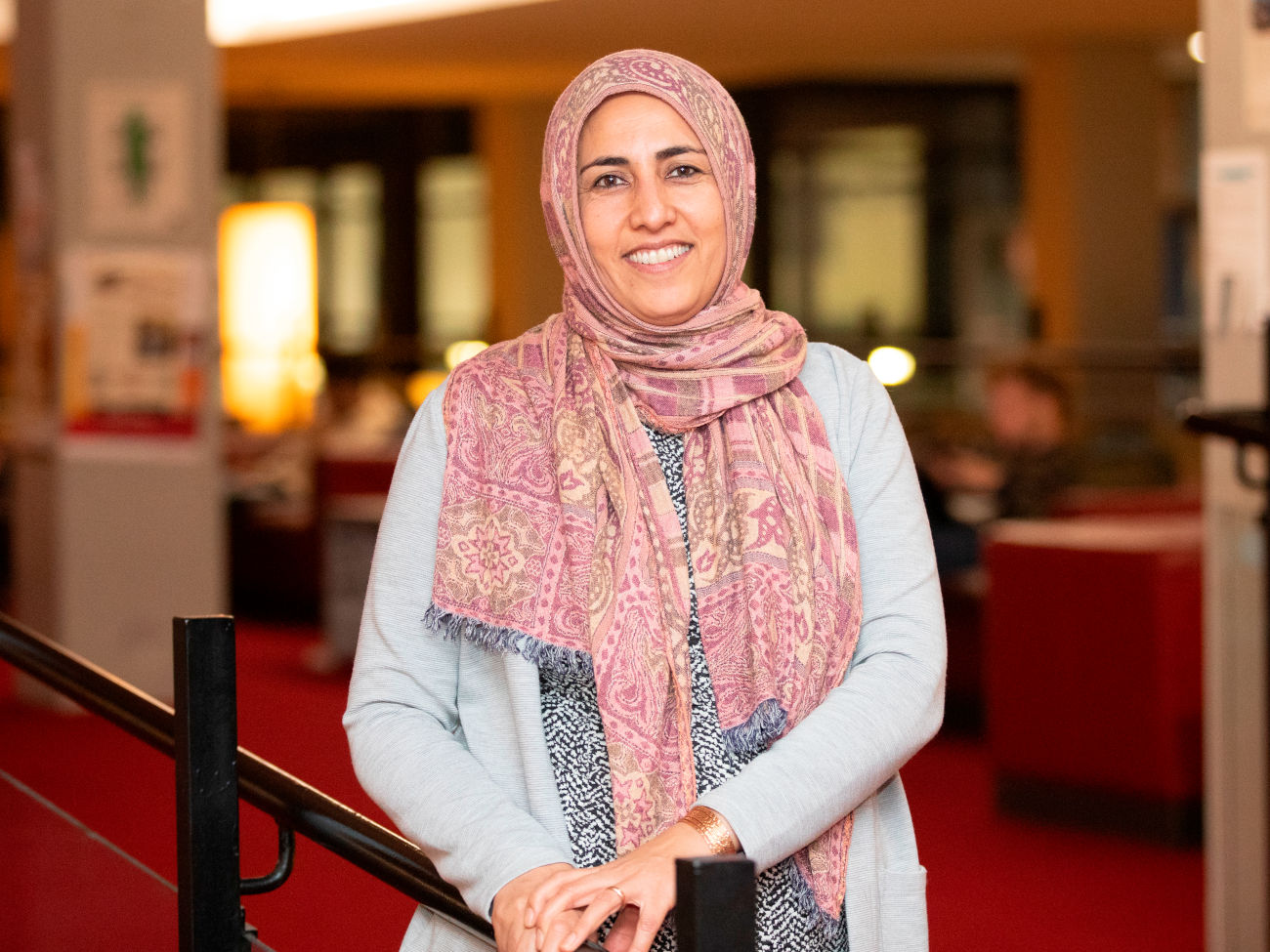
© Jens Lehmkühler
Huma Yari, a systems administrator from Afghanistan, and Andrew Torget, professor of American History, are two of some 400 researchers supported by the Welcome Center each year. The academic community needs bright minds and these are courted all over the world. The aim of the service center is to assist the international researchers in getting started in Bremen as smoothly as possible and thus increase Bremen’s attractiveness as a scientific hub.
“We support everyone from doctoral candidates to postdocs and professors,” explains Julia Holz, who coordinates the Welcome Center together with Janna Wilbers. They are supported by a team of dedicated staff and volunteers. “Without their fantastic commitment, our work would not be possible.” Some researchers, such as Andrew Torget, stay as guest researchers for a few months, others for several years. Others, like Huma Yari, have found a job and want to settle permanently in Bremen.
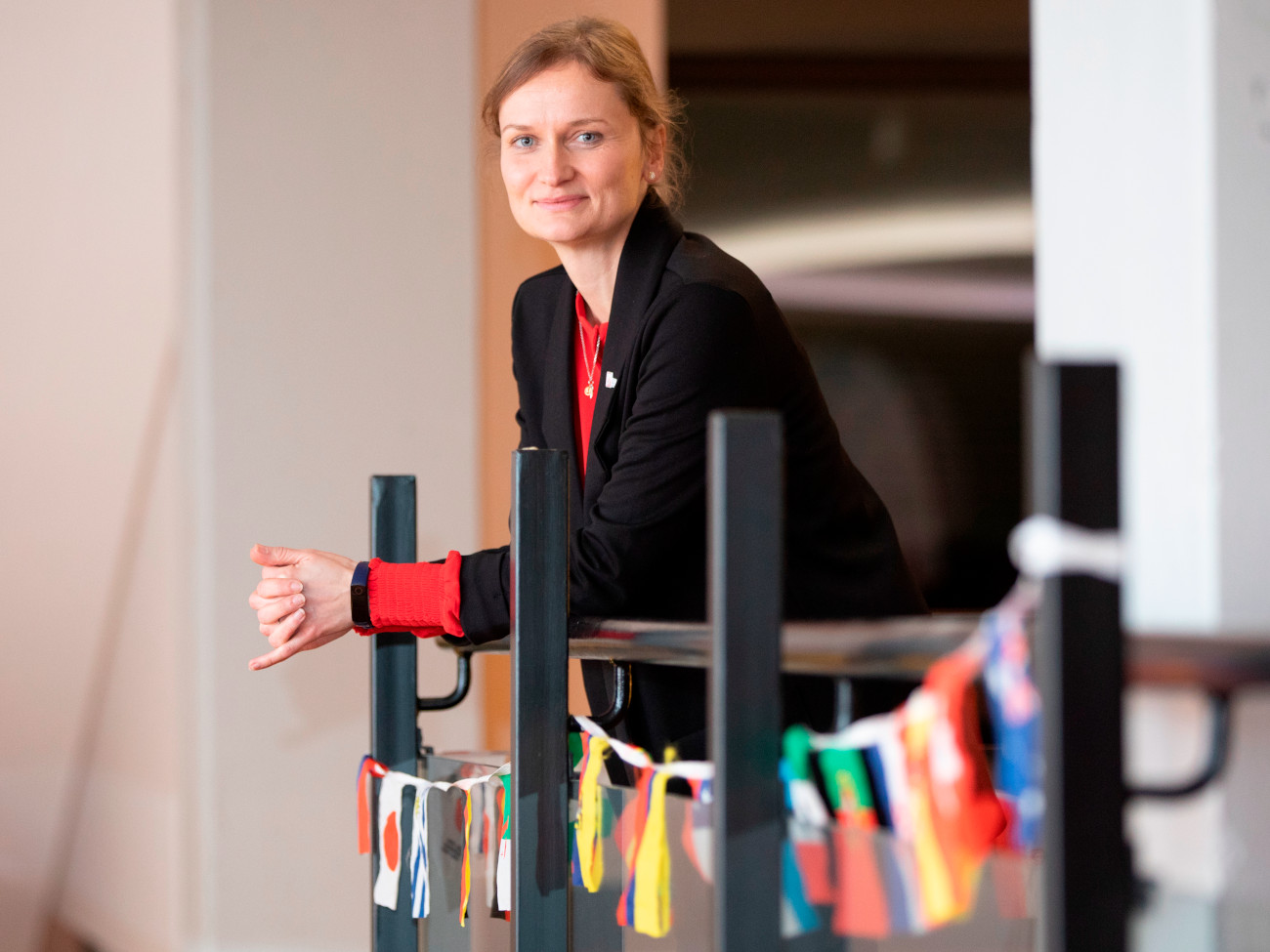
© Jens Lehmkühler
Her team’s work begins long before the researchers arrive in Bremen. “Depending on the country of origin, one of the most important issues is obtaining a visa,” explains Julia Holz. “We work very closely with the immigration authorities.” At this stage, they also provide advice on travel and health insurance, housing, and job opportunities for partners.
“Academic life is hard enough. If their children are well cared for, it’s a great relief for many.” Julia Holz
For researchers with families, a place in a daycare center or school is just as important. “Academic life is hard enough. If your children are well cared for, it’s a great relief for many,” Julia Holz states. It usually takes two to four months to secure a place at a childcare center. In an emergency, childcare is available from the affiliated institutions of the U Bremen Research Alliance.
Huma Yari has also taken advantage of this service. She came to Bremen in 2019 to pursue a PhD in robotics and artificial intelligence at the university. Her stay was supported by a scholarship from the German Academic Exchange Service (DAAD). She had previously taught at Kabul University and completed her master’s degree in computer science at the TU Berlin.
“Whenever I didn’t know what to do next, the Welcome Center supported me.” Huma Yari
Before she could bring her three young children and her husband from Afghanistan, she needed to prove that she had an apartment in order to obtain a visa. “That was a difficult time,” she recalls. “I was all by myself, spoke little German, and wasn’t familiar with the visa process. Whenever I got stuck, the Welcome Center helped me.” Huma Yari eventually found an apartment and, after six months, she was reunited with her family.
Andrew Torget also came to Bremen with his two children and his wife. The historian is working on a book about the immigration of Germans to Texas. The migrants mainly entered the US via the port in Galveston, departing from Bremerhaven. He wanted to research local archives and at the same time teach the English-language seminar “American History since 1865” at the University of Bremen together with Professor Dr. Cornelius Torp. The duo were so successful that they received an award for their teaching.
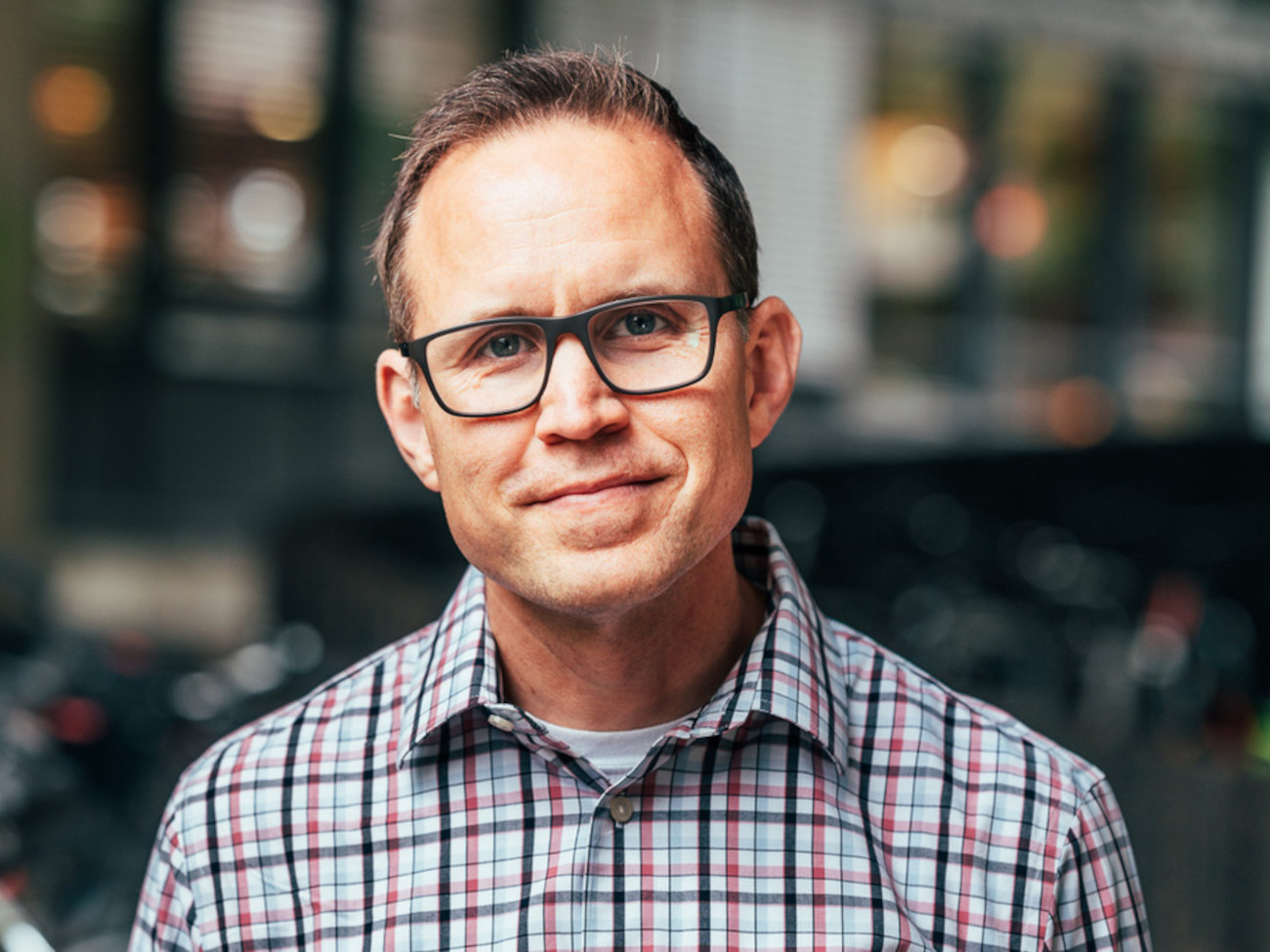
© Lukas Klose
The Fulbright scholar came to Bremen in spring 2023, and his start was not free of obstacles. “The amount of paperwork you have to complete in Germany when opening a bank account or applying for a library card is impressive,” says Andrew Torget with a smile. “For an American citizen, these are challenging tasks. It is good to know that there is someone you can ask at any time.” The needs of the new arrivals, which are determined in an initial consultation, are as individual as the newcomers themselves. However, everyone receives a welcome pack with a checklist, information about the city, and many practical tips: How does waste separation work in Germany? Where can I rent a bike? After the initial contact, newcomers can book individual consultation sessions.
The Welcome Center also organizes German courses together with the Goethe-Institut and other partner organizations. “One of our most important activities is organizing events,” Julia Holz explains. This could be a mudflat hike, baking cookies together, a visit to an exhibition, or the annual reception. “Getting to know each other and connecting is very, very important. The only way researchers will stay with us for a long time or promote us as ambassadors is if they are involved in the community.”
Julia Holz, who originally studied “International Communication & European Studies” in the UK, Spain, and Bremen, has been looking after international researchers at the Welcome Center for ten years now. “I never anticipated that I would spend such a long time in my first job after graduating,” she says with a smile. There are several things that keep her motivated: the interaction with people from all over the world, constantly encountering new topics and challenges, especially during the COVID-19 pandemic – and, of course, the fact that she can help others and make a difference.
Community involvement is also promoted by the Café International and the activities of the SeniorCitizens, a group of around a dozen senior volunteers who help the researchers to find their way in a world that is often completely new to them. One of them is Thomas Neumann, who attends the café almost every Wednesday. After retiring from his teaching job, he was bored and sent an email to the Welcome Center asking: “Can I support you somehow?” This resulted in the SeniorCitizens program. “Usually, the world narrows as you get older,” says the 72-year-old. “Thanks to the program, it has widened for me.”
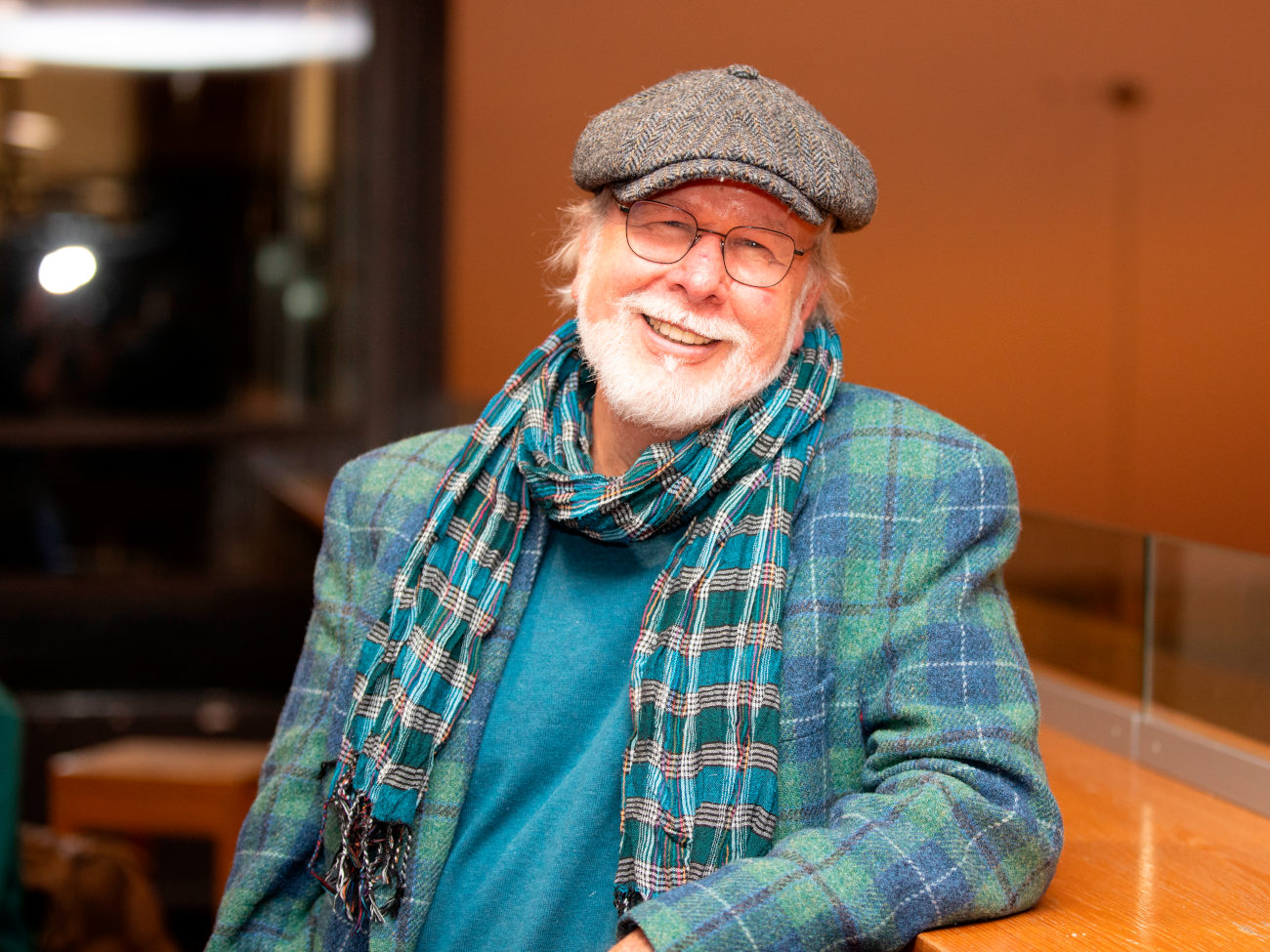
© Jens Lehmkühler
Once a year, the senior citizens organize a “Free-Shop,” a flea market for free, second-hand items, which Huma Yari also enjoyed visiting. “I needed a lot of things for my apartment and didn’t have much money. I still use the glasses, cups, and plates from the flea market.” After the Taliban took power in Afghanistan, her plans to return to her home country were shattered. She has since taken up a job at an IT company, her children have started school and speak German, and she wants to stay: “I am very happy here.”
Andrew Torget was also a regular visitor to the Wednesday get-together. He returned to the University of North Texas in Denton in August 2023. His experiences in Bremen were positive and he is happy to talk about them, thus acting as an ambassador. “Before you travel to a place, you can find out a lot about it online - but you never quite know what awaits you. The Welcome Café and the U Bremen Research Alliance Welcome Center make it much easier to arrive and connect with others.”
Joint the SeniorCitizens program
It can be difficult for researchers and students from abroad to find their way around, especially when they first arrive. Some problems can arise due to cultural misunderstandings. With the SeniorCitizens program of the U Bremen Research Alliance’s Welcome Center, experienced senior citizens volunteer to help newcomers settle in and support them as mentors. They introduce international students and visiting researchers to German culture, go on group outings, or support them with everyday problems. This is an enriching experience for both sides and can often lead to lasting friendships. Fellow volunteers are always welcome.
This article comes from Impact – The U Bremen Research Alliance science magazine
The University of Bremen and twelve non-university research institutes financed by the federal government cooperate within the U Bremen Research Alliance. The joint work spans across four high-profile areas and thus from “the deep sea into space.” Biannually, Impact science magazine (in German) provides an exciting insight into the effects of cooperative research in Bremen.